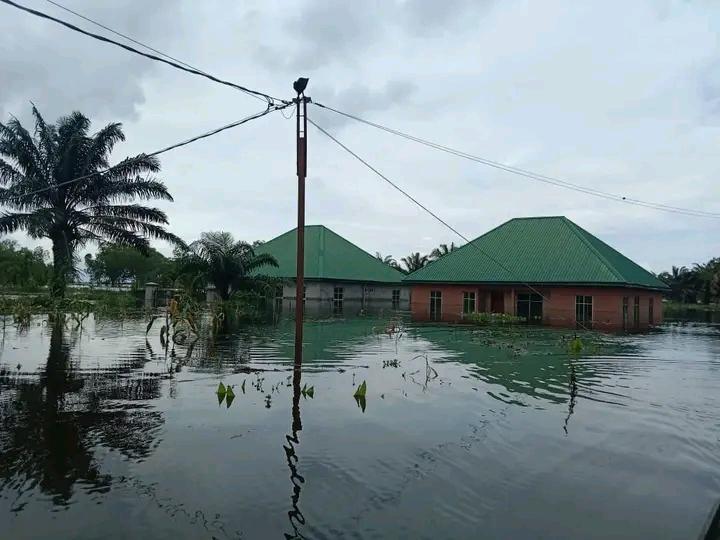Nigerians have continued to count losses as flood ravages various communities in many states of the federation since the start of the rainy season.
During an emergency technical meeting on flood held at the headquarters of the National Emergency Management Agency (NEMA) on September 20, 2022 in Abuja, the Director-General of the agency, Mustapha Habib Ahmed, said about 300 lives were lost to flooding and more than 100,000 others displaced since the start of the raining season in February.
- Obi supporters’ Lagos rally four times bigger than APC’s
- VIDEO: Moment singer Asake dashed off stage after guard’s gun went missing
He added that over 500 persons were seriously injured due to the disaster, while more than 500,000 people were affected.
Since then, flood has continued to wreak havoc on many states of the federation, destroying property, farmlands, crops and killing individuals.
Daily Trust looks at five major losses caused by flooding in the country.
Loss of lives
Loss of lives is the major tragedy of this year’s flood. Devastating floods have claimed hundreds of lives across states in Nigeria. Latest in the row are the 50 persons who lost their lives when flood ravaged 27 local government areas in Jigawa State. It killed 79 in Anambra and Enugu, 23 in Benue State, among others.
More hundreds were injured by flood disasters in the affected states, as hundreds of other locals were said to have been evacuated from their flood-ravaged communities.
Property
Thousands of people were rendered homeless as floods submerged many communities in various states.
In the process, the flood overwhelmed many towns and villages, drainage channels, streets, houses, and even pulled down buildings.
For example, no fewer than four out of the 10 villages in Igbariam, Anambra East Local Government Area, have been submerged by flood.
Many houses in Anekwem, Ogugu-Etiti, Ubaru, Obidi and foculary/Catholic zone are under water.
In Yobe State, nine local government areas have been cut off leaving commuters with no option but to travel through Jigawa State for over 300 kilometres to access these local governments. Flood cut off culverts, bridges and roads linking nine local government areas to other parts of the state.
Livelihood
Sources of livelihood have greatly been affected as flood continues. In many of the affected communities, farmlands, cash crops, schools, churches, markets, fishing facilities, among others have been destroyed.
The entire rice farmlands of around 4,400 hectares belonging to Olam Company in Nasarawa State were submerged due to excess water from the River Benue.
Olam farm contributes immensely to rice value chain in the country’s drive for rice sufficiency.
Business owners in Kanti Kwari in Kano State counted a huge loss as flood ravaged the market. It pulled down buildings and destroyed property worth millions of naira.
Prices
The floods have destroyed crops in many farmlands, mostly in the North, which produces much of what the country eats. This could further affect the food supply already disrupted by armed conflict in the region.
Already, an agri-business company, Olam Nigeria Limited, said the price of rice would go up by December as massive flooding from River Benue damaged the company’s crops and infrastructure.
Speaking on a programme on Arise TV, the vice-president, Olam Nigeria Limited, Ade Adefeko, said the incident affected the company’s $20 million investment and about 25 per cent of Nigeria’s rice needs.
However, hectares of farmlands have been destroyed across many states, that this may not only lead to prices in commodities but also, if care is not taken, food shortage.
Fuel Scarcity
Abuja and some states in the North are currently experiencing fuel scarcity, thereby grounding vehicular movement due to flooding in Lokoja.
The Nigerian Midstream and Downstream Petroleum Regulatory Authority (NMDPRA) had since released a statement on the crisis.
NMDPRA said water submerged a greater part of the city and grounded all vehicular movements.
It said the development affected distribution of petroleum products to the Federal Capital Territory, Abuja and environs.
But as part of the measures to mitigate the situation, it said it was considering trucking via alternative routes.

 Join Daily Trust WhatsApp Community For Quick Access To News and Happenings Around You.
Join Daily Trust WhatsApp Community For Quick Access To News and Happenings Around You.


